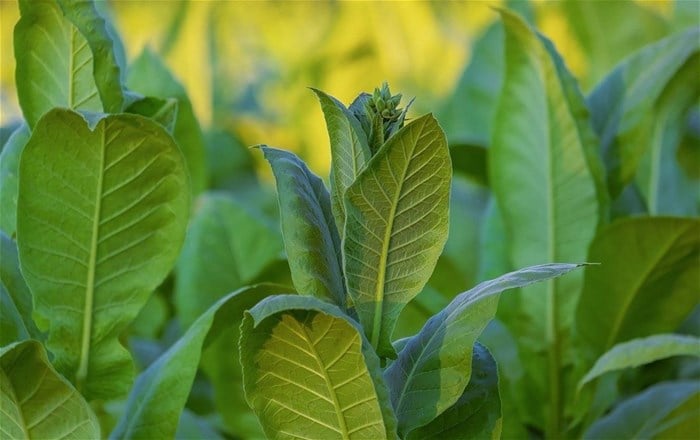
Top stories






More news


ESG & Sustainability
Redisa calls on govt to fix South Africa’s “broken” waste management system



























If drastic action is not taken soon, the more than 150 black tobacco farmers who are struggling to make a living in rural South Africa will soon go out of business. I’m in the tobacco industry myself and interact regularly with farmers and other processors. And it is no understatement to say that our lives have all been devastated by the economic consequences of the national pandemic, where the legal sale of cigarettes and other tobacco products was banned for almost five months.
We are not the only ones in the tobacco sector who have suffered. All the members of the sector’s value chain organisation, the South Africa Tobacco Transformation Alliance (SATTA) -- who include the Black Tobacco Farmers Association, BAT South Africa, the Limpopo Tobacco Processors and Tobacco Producers Development -- suffered tremendous losses because of their compliance with the law.
The same impact was felt by our extended value-chain partners, small traders and spaza shop owners, of whom the vast majority are black.
But perhaps the biggest loser of all from the Covid-19 pandemic was the national fiscus. As a result of the lockdown, it is estimated that excise revenues for the current fiscal year will fall by 32%, while R13.7bn in excise revenue will be lost to the illicit market.
There can be absolutely no doubt who the biggest winners were, though: it was the shady characters who deal in illicit cigarettes. They were already making money hand over fist before Covid-19, but the lockdown was manna from heaven for them.
According to an independent study by the Research Unit on the Economics of Excisable Products at the University of Cape Town, the illicit trade – known as the duty not paid (DNP) trade – grew by an unprecedented 104% during the lockdown period.
In addition, a lot of illicit products currently sit in the market. And, since the ban, they have been selling cigarettes at pre-sales ban prices that clearly could not have paid excise duties.
What is more concerning is that the ban allowed the development of strong and sophisticated trans-border criminal networks of illicit players. The market has been almost completely taken over by criminal syndicates.
There are two obvious problems as we slowly emerge from the devastation of the Covid-19 pandemic:
• Government needs to maximise its recovery of excise on legally-sold products; and
• Government needs to find new ways to break the back of those behind illegally-sold products.
Clearly, a new approach to this situation is needed.
There are two ways for the government to increase excise revenue from the sale of tobacco products.
Option one is to act in such a way that encourages increased legal sales volumes, which will increase the amount of revenue. This would mean keeping the price of tobacco products at an affordable level.
Option two is to increases the excise on tobacco products which, in our view, will decrease the number of legal tobacco products being sold and consequently decrease the amount of revenue. It will also, we have no doubt, open up more and more space for illicit traders.
We believe that option one – not to increase excise on cigarettes, to keep the prices at current levels – is by far the best option.
This can be done by National Treasury not increasing excise now but adhering to its policy of 40% excise incidence for cigarettes (the excise incidence currently sits at 41,4%).
At the same time, law enforcement agencies must directly tackle the illicit trade in cigarettes which has heavily impacted our value chain. It is no secret that SARS is currently struggling with the capacity to arrest and bring those guilty of illicit trade to book.
To add teeth to the government’s efforts, we are proposing that National Treasury adopts a new approach which has had significant success in other parts of the world.
It hinges on the establishment of a "minimum price level" (MPL) for cigarettes. This would enable law enforcement agencies (and consumers) to recognise illegal cigarettes purely by how cheap they are – which is the most obvious sign that excise duties are not being paid.
For example, if Treasury adopts an MPL price point of R28 for all retail sales of cigarettes, any cigarettes sold below this price would clearly not be "tax-compliant" given the amount that needs to be paid in excise. As a result, law enforcement agencies can enforce immediately based on a strong legal foundation and consumers would get certainty about the legality of their purchase.
An MPL strategy would need to be supported by a deterrent criminal penalty regime which includes heavy fines and jail time for traders who contravene the law. This would allow law enforcement agencies to seize illicit cigarettes in the most efficient and effective way, based on law.
There is a second, equally important step which can be taken: Government should urgently ratify the World Health Organisation Protocol on the elimination of illicit tobacco trade.
The government signed the protocol in 2013 but has yet to ratify it – leaving a large amount of space for illicit traders to continue with their underhand business.
We have asked Parliament for its support in ensuring that the loopholes are closed as quickly as possible by government ratifying the protocol, and finally putting an end to illicit trade.
At the same time, it will be breathing new life into South Africa’s tobacco value chain – and black farmers in particular – while also pumping funds into the country’s running-on-empty fiscus.